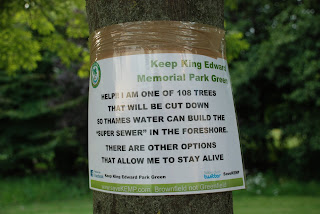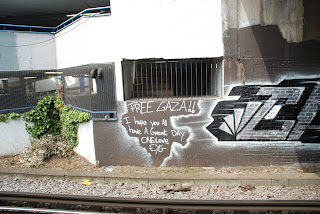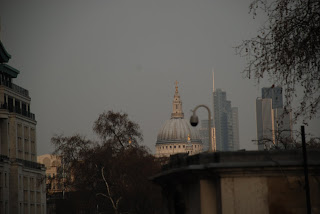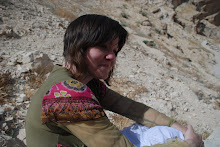The phone hacking scandal that rocked News of the World to its core is still causing uneasiness in the British media.
Can the media industry in Britain restore public trust, which is ebbing away in the wake of the scandal over phone-hacking by employees of the Murdoch-owned News International? The grand institutions of British media are taking a long hard look at themselves and their media ethics following the public outcry over the News of the World hacking scandal, clearly anxious over what inquiries into this will reveal.
On September 6, James Murdoch was recalled to a Parliamentary Select Committee on the Media for further questioning: at the same time, across town, a list of high powered media figures gathered at a Westminster Media Forum conference titled “News Now”.
“Everybody here I would hope is in favour of a free press: it’s the life blood of democracy,” Mark Lewis, lawyer for the family of murdered schoolgirl Milly Dowler, told the conference. Dowler’s voice mail had been hacked by the News of the World staff, who deleted her phone messages, giving false hope to the Dowler family that Milly was alive.
“We talk about the risk of state regulation, of state control of the press,” Lewis said. “We talk about Stalinism but we have a problem if we go the other way and have corporate control of the press, that’s corporate Stalinism, and if we have too great a control by any corporation then we lose sight of democracy.”
Lord Inglewood, chair of the House of Lords Select Committee on Communications, led the Media Forum discussion, which centred on the failure of checks and balances that permitted such corporate erosion of democracy in the UK by the Murdoch empire. The revelations of July 2011 showed the extent of phone-hacking and the News of the World executives’ powerful influence over the British police and politicians, including a succession of Prime Ministers. Tony Blair, it was recently revealed, was godfather to one of Rupert Murdoch’s children.
Current Prime Minister David Cameron’s appointment of former News of the World editor Andy Coulson as his press officer, after Coulson had been sacked in 2007 in connection with phone hacking, also demonstrates the unhealthy influence of the Murdochs over democratic governance.
“Some have called this a shift to a ‘public-relations democracy’,” said Professor Natalie Fenton, co-director at Goldsmith’s Leverhulme research centre, University of London. “Politicians are at the mercy of hungry journalists who can make or break their career. Politicians put PR before sound policy-making and journalists intimidate policy-makers with threats of media campaigns that will make them unelectable”.
 |
| The phone hacking scandal caused a major shock for News Corp[GALLO/GETTY] |
At the launch of the Hacked Off campaign by the victims of phone-hacking, Fenton had “sensed the palpable fear of the MPs in the room – and a very explicit understanding of the courage it had taken to speak out against the Murdoch Empire.”
That kind of media activity “isn’t about speaking truth to power,” she said, “it’s about conducting character assassinations of people who irritate certain people and secret meetings with those in ministerial office where acceptable terms of media policy may be laid down”.
Mary Hockaday, head of the newsroom at the publicly-funded BBC, said that when we all look back on 2011 what will stand out about the news industry will be the sheer number of news stories and the breadth of the news agenda - from the Arab Spring to the summer riots… but after that, of course, hacking. “This has been a year when this slow-burning story finally begun unravelling at speed and sucked media police and politicians right into it,” she said.
The Select Committee was asking Murdoch and other newspaper representatives whether they had misled Parliament at earlier hearings. Those led to a formal inquiry by Lord Justice Leveson into the standards of the press, looking at the relationship between the press and the police and the press and politics.
Its brief is to inquire into the culture, practices, and ethics of the press, looking at the contacts and the relationships between national newspapers and politicians and police, the extent to which the current policy and regulatory framework has failed including in relation to data protection; and the extent to which there was a failure to act on previous warnings about media misconduct.
There are also moves to reform the regulation of the media in Britain, to support the integrity and freedom of the press, with the plurality of the media, and its independence, including from government, while encouraging the highest ethical and professional standards. Regulation, however, worries media managers.
Tom Kent is deputy managing editor and Standards Editor at Associated Press. He would prefer that media organisations remained self-policing and practised a code of ethics “integral to the culture of their particular organisations”.
Professor Natalie Fenton responded that this approach has failed to protect media in the interests of the public: “Regulation of the press has always been seen as tantamount to authoritarian rule… It’s seen as deliberate interference with the inner vision and the freedom of the press and it’s been profoundly anti democratic.”
“Yet we have to now face up to the fact that this approach has actually done precious little to protect the public interest in the provision of news and its contribution to democratic life,” Fenton continued: “maybe it has done quite a lot to encourage commercial news vandalism.”
Public-service broadcasting is regulated by law in the UK and, Fenton said, there “we see some of the very best in investigative journalism. It’s not perfect, but it does expose the nonsense that imposing standards on a news industry inevitably leads to anti-democratic practise and diminishes journalistic integrity.”
If we accept that there is a connection between news and democracy, that news provides the vital resources of information gathering, deliberation, and analysis – then surely,” Fenton concluded, “it’s not unreasonable to accept that it’s any government’s democratic responsibility to ensure the conditions are in place to promote democratic practise.
An excessively liberalised press has failed to provide the freedom to practise independent journalism in the public interest.”
Solicitor Mark Lewis said that the scandal did not start in 2011, “it didn’t start with Milly Dowler’s family when that was exposed”. That revelation simply broke the “wall of silence” about what the Murdoch press - and other newspaper groups - had been doing. Lewis has had “phone calls from other groups’ lawyers who said ‘if you mention us, we’re going to sue you’.”
All the newspaper groups say their journalists follow the Press Complaints Commission Code of conduct and abide by the criminal law “but what they don’t say is whether they did all the time, and whether they have looked at past actions by individual reporters," Lewis said.
Investigating properly is “something that’s worth while doing, it helps democracy,” Lewis concluded, “but actions which don’t do that which, break the law for no purpose at all, other than to feed a story which isn’t in the public interest, or to create a story – that’s not worth while at all.”




































